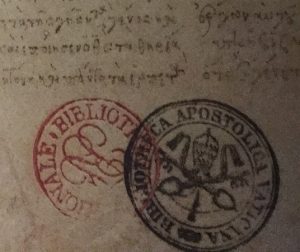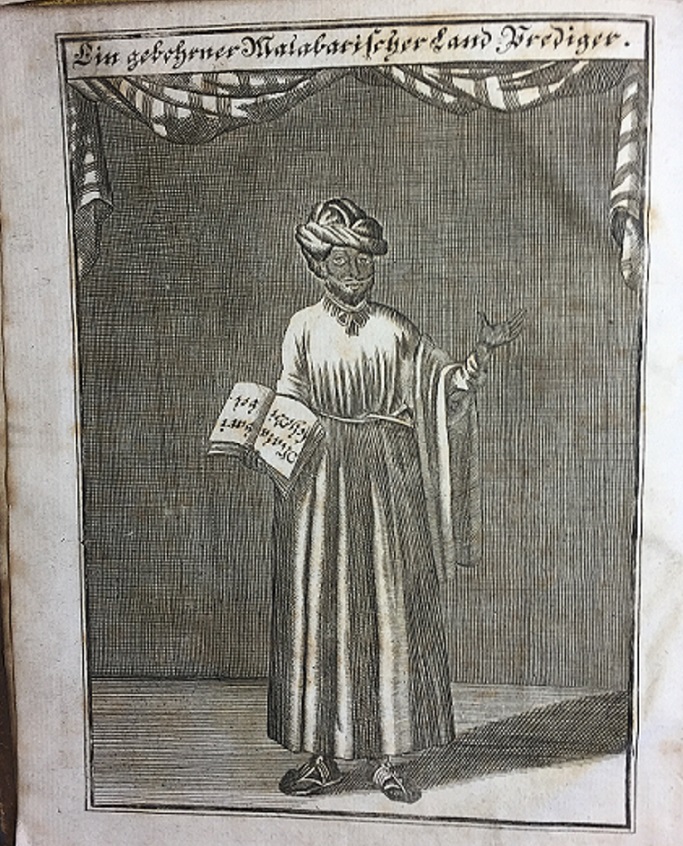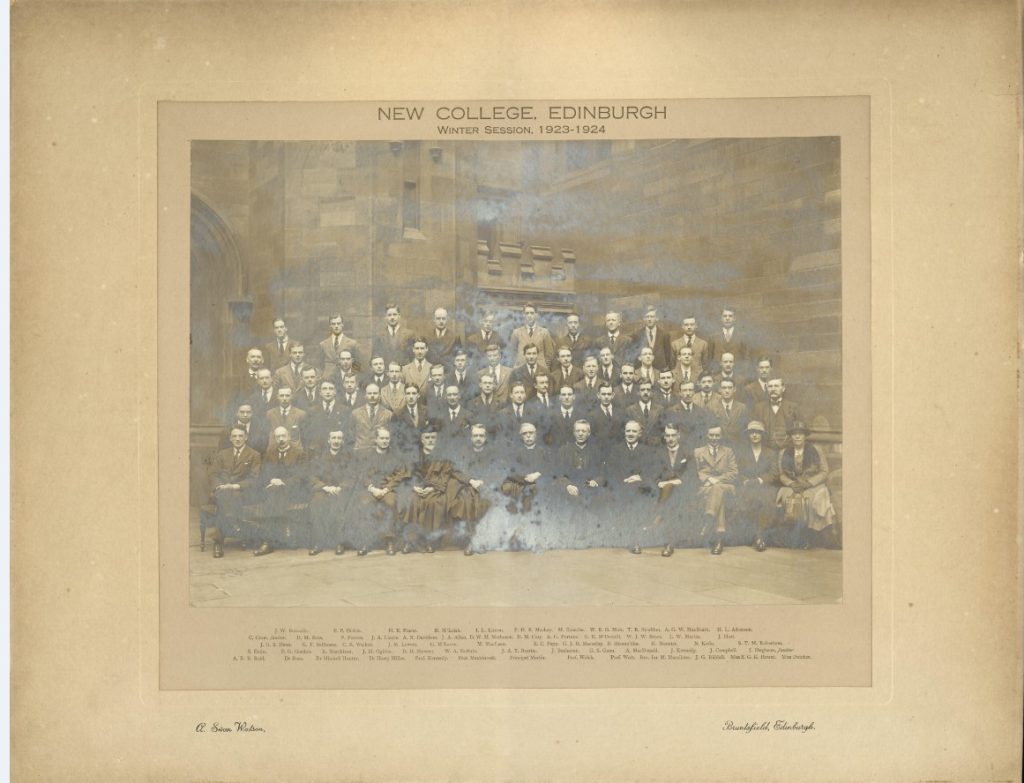On Saturday 22 October, I was delighted to be able to present a paper to the Scottish Church History Society at their one day conference in the Edinburgh Theological Seminary. With very few of the catalogues for New College manuscripts online, it seemed like the ideal time to draw attention to some of our valuable holdings.
For those of you unable to attend what was a fascinating conference here are my top ten of the “expected” collections that are available to researchers in New College Library. I shall blog my “unexpected” list another time.
1. The papers of Thomas Chalmers (1780-1847) and his family (ref. MS CHA). Thomas Chalmers is regarded as the leader of The Disruption, which saw the formation of the Free Church of Scotland. A major figure in his lifetime, the collection contains, about 15,000 letters to and from leaders in society as well as ordinary parishioners. There are family papers, sermons and files on large bodies of work such as Church Extension, Irish Famine, The Convocation, within this extensive collection.
2. The records of New College itself (c.1700-present) (ref. AA) including Senate minutes and committees, annual photographs of staff and students; the records relating to New College Library and the records of many student associations.
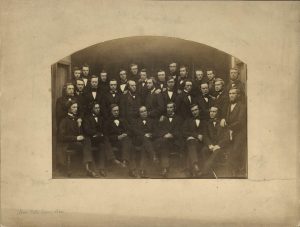
Staff and students at New College, Edinburgh, 1874
3. The papers of Joseph H. Oldham (1874-1967), regarded by many as the father of modern ecumenism. Included are papers relating to The Moot, a Christian think-tank which met regularly to discuss issues of post-war reconstructions. Individuals involved included John Baillie and T S Eliot. (ref. MS OLD).
4. Church of Scotland papers (1638- ) (ref. CHU). Many of the manuscripts were originally part of the General Assembly of the Church of Scotland Library, which was donated to New College in 1958. The records are largely committee papers such as those looking at baptism or elements of doctrine. Most Kirk records are held by the National Records of Scotland.
5. Papers of the Westminster Assembly (1643-1830) (ref. MS). These are manuscript copies of proceedings at the Westminster Assembly of the Divines between 1643 and 1653. There are also signed copies of the Westminster Confession of Faith (ref. MS WES 3.1).
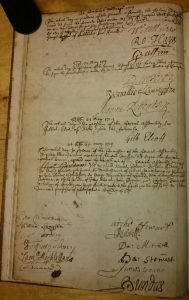
Signed copy of the Westminster Confession of Faith showing the signature of Duncan Forbes of Culloden, amongst others (ref. MS WES 3.1).
6. New College Library holds five copies of the National Covenant (1638- ), a number of which used to be displayed on the walls of New College. They are distinguished by provenance: one bequeathed by Dr Thomas Guthrie; one signed by Edinburgh hammermen; one signed only by nobles; one signed by people in Kinneil and Bo’ness; and one signed by the inhabitants of North Leith (ref. MS BOX 52.2.2 & 3, et al).
7. Manuscript sermon notebooks (c1648-c1819) (ref. MS SER). It should be no surprise that divinity students would want to see examples of sermons and sermons by well-known figures such as Thomas Boston, Samuel Rutherford, James Renwick or Robert Wodrow. This series of over 40 notebooks is complemented throughout the collection by other sermon notebooks, the earliest being around c.1648 up to the 20th century.
8. Returns for the Annals of the Free Church of Scotland and for Fasti Ecclesiae Scoticanae (MS BRO and MS SCO). It should be noted that these rarely provide much more information than that which is contained in the published volumes.
9. Papers of the Very Reverend Professors. New College has collections for many eminent preachers and theologians, some of whom held the office of Moderator. Some of the individuals include: Alexander Whyte (1836-1921) (ref. MS WHY); James Denney (1856-1917) (ref. MS DEN); Alexander Martin (1857-1946) (ref. MS MAR); John White (1867-1951) (ref. MS WHI); Archibald C. Craig (1888-1985) (ref. MS CRA or GD 30); William Manson (1882-1958) (ref. MAN); James S Stewart (1896-1990) (ref. MS STE); John McIntyre (1916-2005) (ref. AA4); James Whyte (1920-2005) (ref. AA5); and Alec C. Cheyne (1924-2006) (ref. AA7).
10. The papers of Rev Robert Murray McCheyne (1813-1843) (ref. MS MACCH). Although he died tragically young, McCheyne was a well-respected and gifted minister. His collection contains personal letters, poems, diaries and sketches including those from his time in Palestine when he participated in the Church of Scotland’s Mission of Inquiry to the Condition of the Jews.
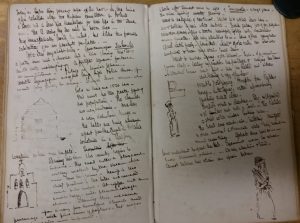
Robert Murray McCheyne’s diary from his trip to Palestine, 1838 (ref. MS MACCH1.8)
Copies of the current catalogue are in the process of being added to the University of Edinburgh’s online catalogue Archives Online but until the preparation and upload of these catalogues has been completed please refer all enquiries regarding New College Collections to new.college.library@ed.ac.uk.
Kirsty M Stewart, New College Collections Curator
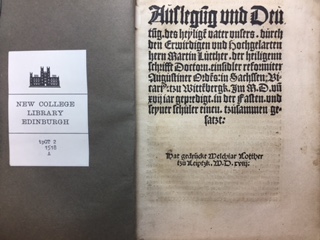
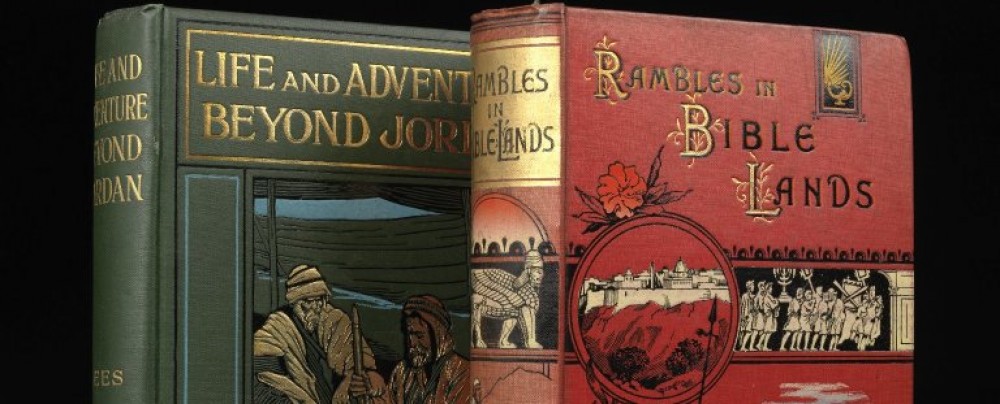
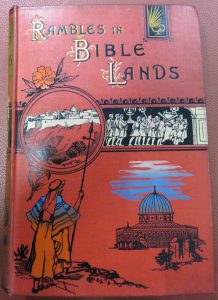
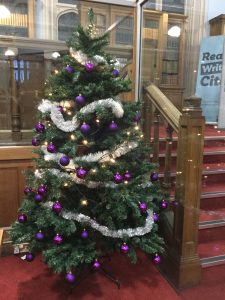 New College Library will close at 1pm on Friday 23 December 2016 and reopen again at 9am on Wednesday 4 January 2017. More details on opening hours for all University of Edinburgh Library sites over the holidays are available at :
New College Library will close at 1pm on Friday 23 December 2016 and reopen again at 9am on Wednesday 4 January 2017. More details on opening hours for all University of Edinburgh Library sites over the holidays are available at :  Student recommendations are in at New College Library! The recently purchased Inherit the Holy Mountain: Religion and the Rise of American Environmentalism, edited by Mark Stoll, is available as an ebook via
Student recommendations are in at New College Library! The recently purchased Inherit the Holy Mountain: Religion and the Rise of American Environmentalism, edited by Mark Stoll, is available as an ebook via 



